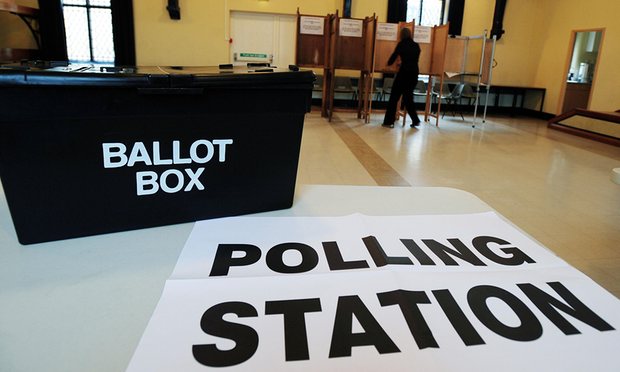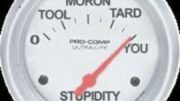When it comes to local government elections, those councillors who are representing the party that is in national government can take an electoral hit. This is because some electors wish to punish the national government party for policies that they see as wrong or damaging. This mid term punishment is a relatively normal thing in British electoral politics. We saw this in the years following the first General Election win by Margaret Thatcher where Labour did very well in local elections, possibly as a reaction against Mrs Thatcher’s government and her policies and also because Labour were being seen by many voters as the obvious and still just about credible alternative to the Tories.
This losing streak for the Tories ended in large part because of the Falklands War. Nationally the Tories got an electoral boost because of Mrs Thatcher’s conduct during that conflict. The war and the subsequent defeat of Argentina made Margaret Thatcher look like a strong national leader and helped to drive into the background many of Mrs Thatcher’s critics both from the right and from the Left. This war played a part in getting the Tories re-elected for a second term in the General Election in 1983. It burnished the image of the Conservatives and saved the Tories from complete destruction at the 1982 local elections.
In these elections the Tories only lost 98 council seats as opposed to Labour who lost 225. Labour were also hurt by the emergence on the local electoral front of an alliance between the Liberals and the Social Democratic Party which was formed by the Gang of Four Labour moderates who left Labour due to the party shifting Left under then leader Michael Foot. In 1982 the SDP Liberal Alliance took 1850 council seats a considerable jump in seat numbers where in the previous 1980 local elections the Liberal’s alone could only achieve 1149 council seats. The Falklands War with its changing of the image of Margaret Thatcher from ‘Milk Snatcher’ to a modern day simulacrum of Lady Britannia or Boudica helped the Tories survive the 82 locals with minimal losses with most losses coming from Labour.
A national government leader who has a successful war may well, as we see in the case of the local elections carried out during Margaret Thatcher’s ‘Falklands Term’, find that they do not suffer as much from the usual drop off of support at locals that often occur in the middle of an electoral term. However whether or not a war enhances or detracts from a government appears to depend on the war that is being fought.
Whereas Margaret Thatcher gained electoral support during and following the Falklands War, Tony Blair’s war in the Middle East had the opposite effect. In the 2004 local elections, the first since the nation had been sent to war in Iraq in March 2003, the Labour Party got hit hard with the Tories and the by now fully integrated SDP /Liberals in the form of the Liberal Democrats, gaining council seats. Labour got hammered at these locals and even Labour’s Deputy Prime Minister John now Lord Prescott said that the Iraq War was a ‘shadow’ over these elections. The Falklands War aided Margaret Thatcher electorally but the Iraq War did the exact opposite for Tony Blair.
So if a good war for a leader means a possibility of a positive electoral uplift in local elections and a bad war causes the leader’s party to take a hit, then it’s probably right that I wonder whether the Ukraine War will cause local electoral upset in the UK? On the 5th of May many people will be voting in local council elections in the United Kingdom. All the London Boroughs are up for election as are many English counties along with Metropolitan and District Councils. There are also elections for local government in Wales and Scotland. The last time that these councils were subjected to elections was in 2018 and a lot both politically, economically and socially has happened since then.
Since 2018 one major variable in British politics, that of Brexit, has mostly been resolved however other variables some outside but some very much inside the control of the UK government have appeared. This is the first major large scale countrywide electoral test of Boris Johnson’s Conservatives since the end of the Coronavirus pandemic. The local elections that occurred during the pandemic in 2021 saw the Tories benefit to some extent from the successful Covid vaccine roll out. The Tories gained 235 seats in these elections whereas Labour lost 327.
The Tories may have benefited from the vaccine bonus in 2021 but it’s highly unlikely that this bonus card could be able to be played in May 2022. Voters concerns might be less about fighting back against Covid and much more about the social and economic damage that the Government has done with Covid suppression policies such as the lockdowns and the mess that has been created in the NHS.
The Tories are also hampered by the fact that they as a party and Boris Johnson as a Prime Minister are very closely identified with the Net Zero obsessions that are already starting to send many Britons into energy poverty. When voters look at their energy bills prior to the local elections they might not think that the extortionate prices that they are paying for energy are the result of market forces that are out of HMG’s control, but of the Government policies are making a bad situation regards market prices for energy much worse. The UK government because of it’s adherence to the policies demanded by a relatively small number of wealthy and politically well connected green activists, has failed to put energy security for the nation as the priority it needs to be. The failure by this government to frack for gas or to make use of the coal beneath our feet or even to ensure that there is adequate storage for liquid natural gas from the North Sea and elsewhere, has left Britain in a very vulnerable to energy price variations and in a very bad place with regards to security of supply.
Britons are in for some bad shocks regarding energy prices and these shocks will come very shortly before the local elections of 2022. However it’s not at all sure that those who abandon the Tories in disgust over the failure to ensure a secure and affordable supply of energy will turn to Labour. According to a report on the Guido Fawkes site the Labour Party is looking at concentrating on holding the council seats that they already have rather than trying to gain new seats and new councils. This concentration on holding onto already held Labour seats rather than fighting to take new ones suggests to me that Labour’s seeming electoral advantage over a Tory party mired in sleaze, incompetence and waste might not be as strong a some believe it to be.
I suspect that Labour may be concerned at a potential low turnout, something that perennially afflicts local elections, which could mean that the loss of the middle class Left who are largely insulated by way of income from the worst of the energy shocks and fellow travellers with and of the far Left could abandon Labour and vote for the Lib Dems or the far left adjacent Greens. A low turnout could mean that these voters abandonment of Labour could end up with Labour councillors being defeated by Lib Dems or Greens because the rest of the tribal Labour vote, apart from the postal voting communities, didn’t bother to turn out.
A low turnout of those ordinary voters who would normally vote Labour automatically would give the middle class and far Left who have abandoned Labour much more electoral impact. The voters who previously supported Corbynite policies who are unhappy with Sir Keir Starmer’s leadership could hurt Labour by voting for parties that are seen as being more in alignment with Corbynite thinking. The Lib Dems promoting punitive wealth taxes as they are in my area and the Greens promoting what is naive magical thinking regarding the capacity of renewables could drag far left and middle class left voters away from Labour. The voters that Labour are likely to lose would not be voters who would choose the Conservatives as an alternative, they’d vote for something more to the Left of Labour. If the Tories are in potential electoral trouble then I’d say that Labour are too.
It’s highly likely that Boris Johnson will be a wartime Prime Minister in some form or another by the time the next local elections come our way. I don’t think that either the Ukraine War or its aftermath will have gone away by the 5th May. I suspect that this Ukraine War will not, as someone once is claimed to have said about World War 1 when it broke out in 1914 that it would ‘all be over by Christmas’.
The big question for me about the locals is will Boris Johnson have a good war and therefore a good local election in the manner of Margaret Thatcher? Or will Boris Johnson’s war tinged local elections be a cause of Tory local councillors getting punished by the electorate because of the afflictions, especially energy price and security ones that can be laid at the government’s door? Could 2022 be something for the Tories more akin to the Blair local election disaster in 2004?
It’s difficult at this stage to make any direct comparisons with the Falklands War locals and the Iraq War locals. There are factors today that were not about when the Falklands War impacted positively for the Tories and factors missing that applied during the first Iraq War locals. There wasn’t the sort of rampant energy price inflation in the early 1980’s that we are seeing today and the Tories, despite coming under a lot of criticism over their economic policies from the Left, did manage to get the consumer price index down from 22.6% as it had been under Labour in 1975 to a relatively low (at least compared to how it was under Labour’s economic mess) 8.6% in 1982. It’s quite possible that had the economy in 1982 been in a poorer state nationally rather than merely bad regionally, then the Falklands factor for the Tories would I believe be much less.
When it comes to the Iraq War or ‘Blair’s War’ as many people know it then this had factors that are also not present today. For most people the economy of early 21st century Britain was working relatively well. However the Iraq War was extremely unpopular and spawned a turning away from Labour and even led to the short term local and parliamentary electoral success of Trot/Islamic vehicles such as the SWP backed Respect party.
Neither the good economy of Falklands era nor the unpopular war factors are going to be present when the next local elections come about. The economy and the vital things that the nation needs in order to properly survive such as defence and energy security, are in a complete mess.
The UK is in massive debt because of the way that the Govt has handled the Coronavirus issue and Boris Johnson is firmly in the frame for the net zero mess that has caused Britain to be woefully unprepared for the energy crisis that is almost certainly coming. Even if Boris Johnson has a ‘good war’ by the time the 5th May comes around and is seen as a man who has done the right thing by the Ukrainians, I can’t see how the good war factor can help counter the other problems that the Tories currently have.
Those who are currently suffering and who will suffer more because of the Tories screwed up energy policies and the green obsessions may well be less inclined to overlook the pain they will be feeling merely because the PM and HMG are getting all martial over Ukraine. As things stand at the moment I can’t see any war boost to Boris Johnson overpowering the other negatives that surround him and his administration. This is because any war advantage that Boris Johnson has will be countered by the utter travesty of his government’s energy policies and also because of that other big problem that the Tories have which is their complete failure to properly control migration both legal and illegal.
I suspect that these local council elections will not enthuse people. They didn’t in 2018 when only 34.6% of eligible voters bothered to vote whether postally or in person. If the same low turnout occurs this year then we will end up with a really tiny number of people deciding whether or not a councillor candidate gains, loses or retains their seat. When a ward only has a couple of hundred people who bother to vote then it makes the votes of those who do bother that much more influential. A few people unhappy about an aspect of government policy or local council policy can swing an election which might be less possible if a larger proportion of voters bothered to turn out. Low turn outs can mean that you could end up being represented by a ghastly councillor pushing terrible policies merely because only those favourable to such council candidates will be bothered to turn out.
Being a war PM could be make or break for Boris Johnson and his party at these local elections. He could end up presiding over a party that doesn’t perform too badly and that could ensure, at least for the short term that he survives as party leader. But on the other hand if the energy security and affordability disaster occurs to the extent that it is threatening to do or if there are enough people who can see that they’ve suffered because of the Government’s handling of Coronavirus and if the Partygate stuff ends up gaining traction with the electorate, then the Tories will lose many councils and council seats and the PM’s position will be less secure.
Boris Johnson’s Conservatives could get an electoral war bonus but it might not be enough to counter the other mostly self inflicted wounds that the Tories have given themselves over energy, migration and economic management. At present and at this stage of the war in Eastern Europe the British public’s mood is quite buoyant about the war and firmly on the side of the Ukraine as far as I can ascertain. It’s not an unpopular war like the Iraq War so the Tories are not going to suffer in that area, but neither is it a war of liberation for Britons as was the Falklands conflict.
It’s difficult to make hard predictions about elections but for the Tories I don’t believe that it is going to be a repeat of 1982 nor 2004. What I do believe is likely to happen is that the electorate will not be motivated by national pride as in 1982 and also not by national disgust which is what happened in 2004. This is going to be a whole lot more open as a contest with voters being less influenced by Britain’s perceived military and diplomatic prowess and much more interested in the fiscal and social afflictions that the Tories have created for us. A hurting people might be looking for someone to blame and they have the perfect and justifiable target in the Conservative Party. After all that party seems to have given up on conserving anything and is one which has sold its soul to the London-centric extremists of the Green Left and done little to fight back against the cultural destroyers that have sprung up in recent years.
The Tories have lost that one advantage that they’ve always had over other parties, the thing that got people going back to the Tories even if they had to hold their noses whilst voting for them. That advantage was the perception whether true or false, that they are the most economically competent of all the Parliamentary political parties. The loss of that perceived image and their transmogrification into a tax and spend statist party may hit them so hard at the ballot box during the local elections that no amount of war bonus will help them.






And I have an ongoing bet that Boris will be out of No 10 by the end of the year, I must try to curb my enthusiasm.
If there’s a wipe out in May then his chances become slimmer.
Your not just trying to cheer me up are you? :-))